There is nothing quite like Quintet’s Soul Blazer trilogy on SNES. Soul Blazer, Illusion of Gaia, and Terranigma were all fantastic top-down action adventures with themes of evolution, rebirth, communing with nature, and stewardship of the earth, yet few have ever tried to replicate those experiences in the years since. However, indie developer stellarNull is here to change that with Anuchard, an adventure that channels many ideas from Soul Blazer in particular in an effort to create something new. The final result is regrettably weak, but hopefully it spurs a resurgence of games in this vein.
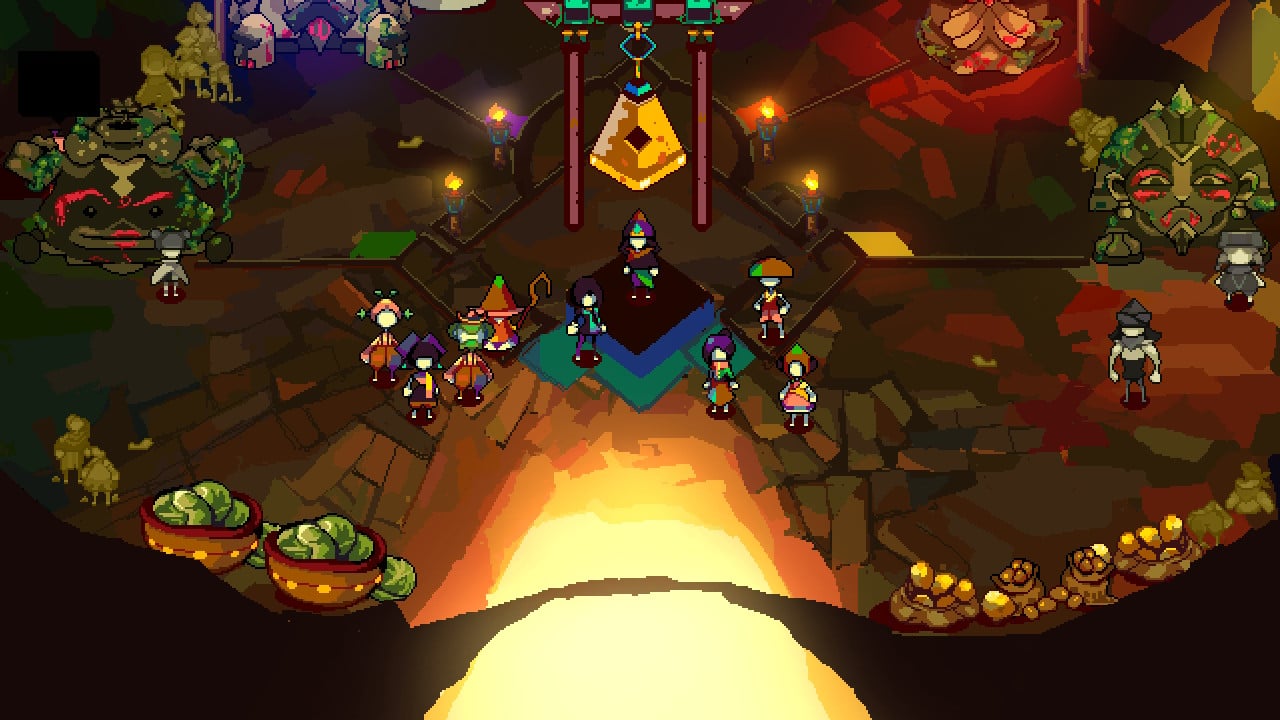
Revive the World in Anuchard
Anuchard borrows its central conceit from Soul Blazer: Most of the world and its people have been sealed away for ages, and only a chosen one (you) can fight through dangerous dungeons to revive both the people and the land itself. You are the Bellwielder, the person who uses a magic bell that is capable of bringing back the land and healing people who have been turned to stone. You are also capable of tracking down the five Guardians to restore prosperity to the land.
The more of the game you play, the more characters and new scenery will emerge. There are so many characters that it’s actually hard to keep track of who’s who sometimes, but the game attempts to give each one personality and distinguishing physical features. There are some chuckle-worthy moments here and there with an overbearing character who runs the starting town, at least.
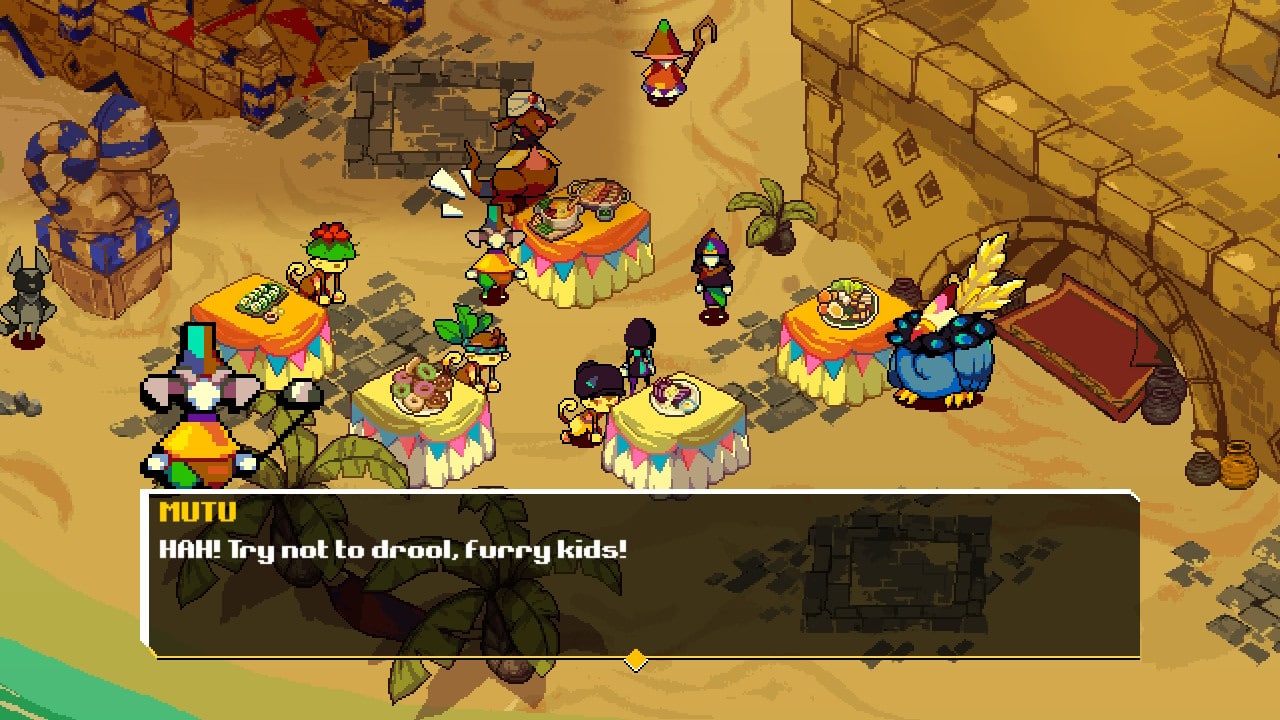
As the story goes on, Anuchard starts to play with its narrative motifs in some worthwhile ways, increasingly hinting that the push for progress and wealth isn’t all it’s cracked up to be. The execution isn’t always engaging though, and it falls apart altogether at the end of the game, where it offers two endings that are both abrupt and vague. Anuchard deserves praise for at least trying to deliver more complex themes than the average game, but its narrative still isn’t particularly memorable.
The aesthetics are another story though. Anuchard enjoys a distinct art style in both its character designs and environments that stands out in the dense crowd of retro indies inspired by classics. The music too is quite pleasant, especially toward the end of the game.
An Exercise in Intense Tedium
The brunt of gameplay in Anuchard involves traversing otherworldly dungeons. You have a standard attack and a rolling strong attack, and once a special gauge is filled, you can activate an ability to gradually restore some of your health. Before you enter a dungeon, you can also eat specific combinations of food in order to receive beneficial effects like increased HP or new effects at the end of your standard attack combo. The controls are easy to manage because your character’s actions are limited and simple in the first place.
Your strong attack also has a ricochet effect on whatever it hits. Some enemies have invincibility barriers that can only be broken when they ricochet off a wall. Meanwhile, there are also special orbs that you can ricochet off walls and through translucent barriers in order to complete simple puzzles. However, the orb puzzles are, with rare exception, intensely simple and feel more like busywork than a valuable addition to dungeons.
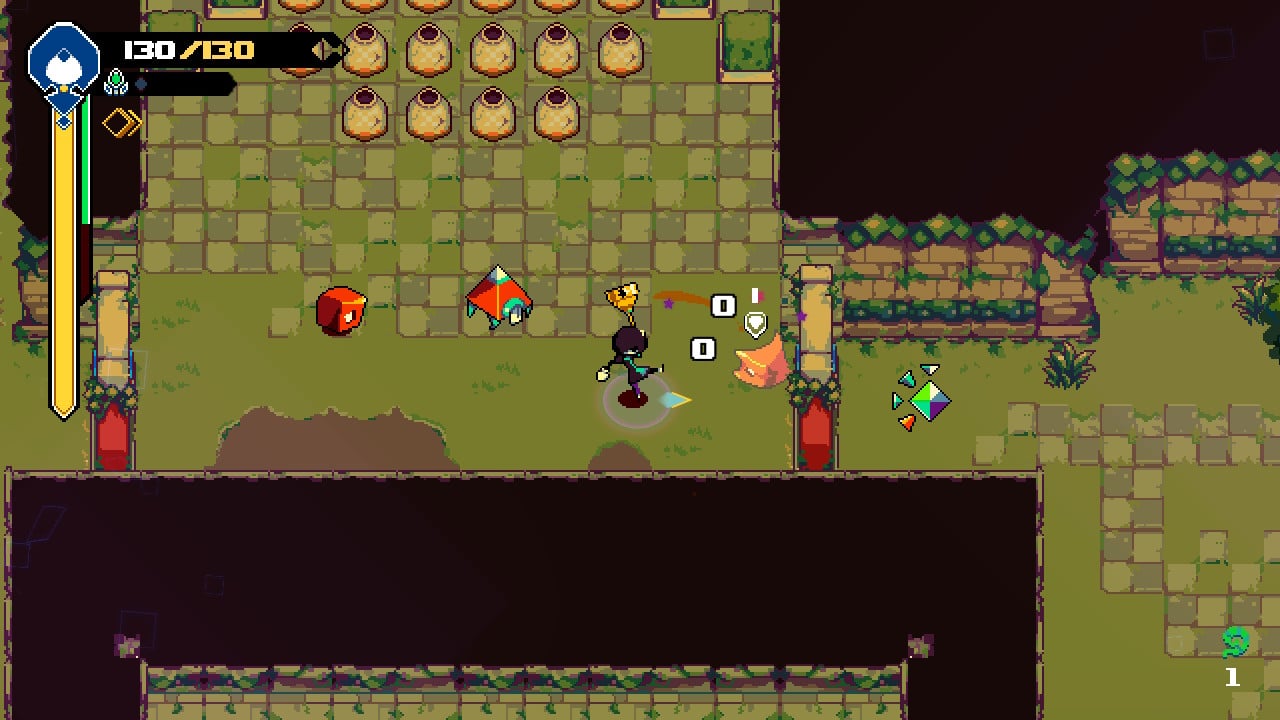
Indeed, the dungeon design in Anuchard is agonizingly monotonous from start to finish. Every dungeon is a set of narrow corridors containing orb puzzles, locked battle rooms, and hidden collectibles that can be used to build new things back home or obtain power upgrades. The dungeons are meant to be mazes, but there’s nothing clever about them. Hiding secret paths inside a wall or a sneaky place where you can drop down from a higher elevation to a lower elevation is all Anuchard can muster. And while finding the hidden collectibles isn’t particularly entertaining either, it’s the only thing that prevents the dungeons from being completely mindless.
The combat is even worse. Enemies spawn in set groups in the aforementioned battle rooms, and it’s just a matter of hammering the attack button (or ricocheting them off the wall a couple times) until everything is dead. The same general enemy types appear in each dungeon, and they only evolve in trivial ways over time. The mini-bosses behave virtually identically to the regular enemies too, except they are larger and have more HP. The result is that almost every fight in the game feels the same, and since the Bellwielder’s attacks are somewhat slow and lumbering in the first place, it creates a feeling of extreme tedium.
The major boss fights are the only battles in Anuchard that are actually fun. They aren’t difficult, but they at least give you a new challenge to consider, which is something weirdly absent literally everywhere else in the game.
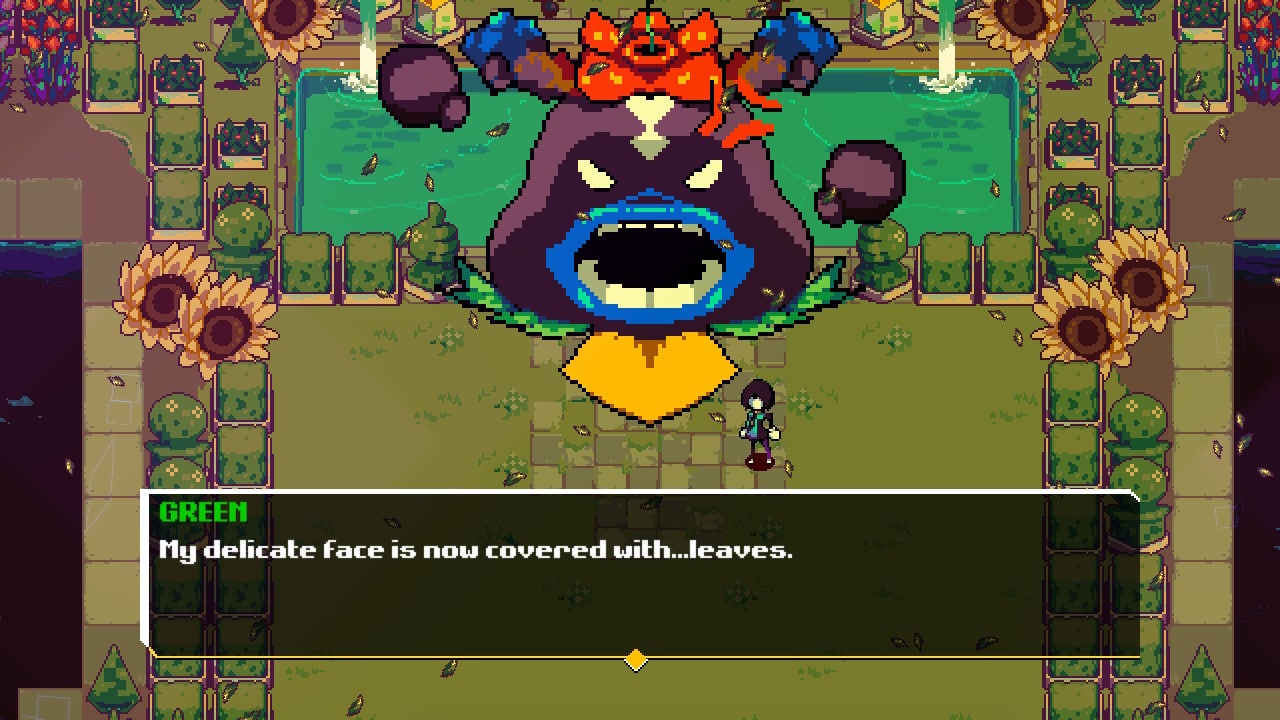
The gameplay back in town isn’t any more stimulating. There are various sidequests you can do that just involve talking to person X and Y to accomplish goal Z, but they typically only reward ornamental mementos that go on your shelf afterward. Likewise, several of the town upgrades that you can purchase with your dungeon resources seem to be cosmetic only. That means that not a lot of things you accomplish in town ultimately feed back into how you play through the dungeons. It’s a weak feedback loop.
The Review Verdict on Anuchard
Ultimately, Anuchard is an intensely monotonous game that really only succeeds in its art design and sound. Nearly every dungeon feels the same, and every battle outside of boss fights feels like a mindless waste of time. The story is more ambitious, but it never culminates in something satisfying across its dozen hours of gameplay. This is certainly not a game that lives up to the pedigree of the Soul Blazer trilogy. But perhaps stellarNull can dust itself off and deliver something more impactful the next time around.
A Nintendo Switch review code for Anuchard was provided by the publisher.

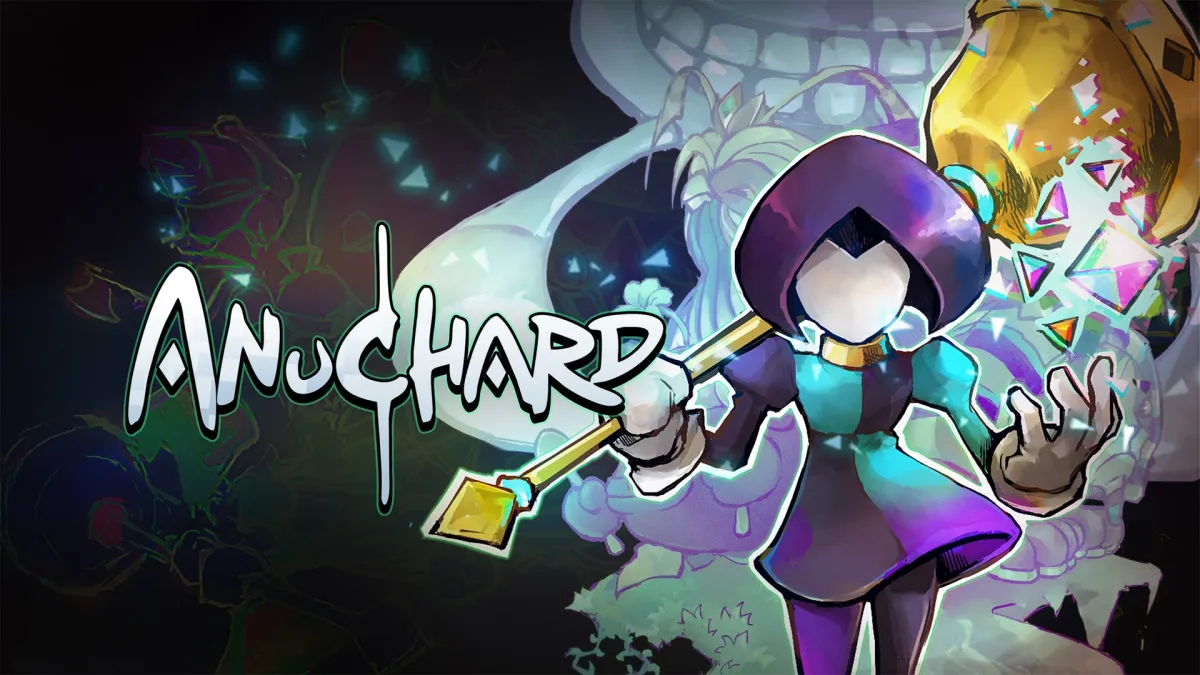




Published: May 1, 2022 11:00 am